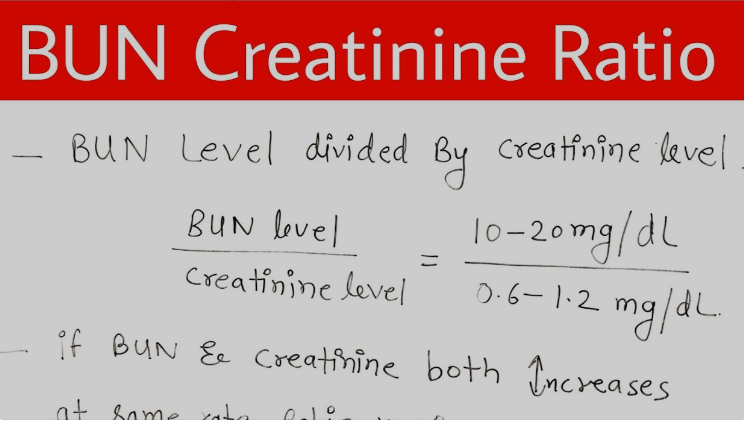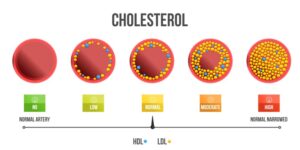Understanding the Blood Urea Nitrogen (BUN) Test: Key Insights

The Blood Urea Nitrogen (BUN) Test is a crucial diagnostic tool used by medical professionals worldwide. It primarily measures the amount of urea nitrogen present in the blood, offering insights into kidney function and overall health. This article delves into the intricacies of the BUN test, its significance, and the associated bun/creatinine ratio.
Also Read:- Saline Nasal Sprays: A Safe Allergy Relief Solution
Why You Get the BUN Test:
The primary reason for undergoing a BUN test is to gauge the performance of your kidneys. Urea nitrogen is a waste product that forms in the liver when the body processes protein. Healthy kidneys filter out this waste, which then exits the body through urine. A high BUN level might indicate that the kidneys aren’t functioning optimally, or it could be a sign of other health issues.
Doctors often recommend the BUN test to:
- Monitor the progress of chronic kidney disease.
- Determine the effectiveness of dialysis treatment.
- Assess the health of patients undergoing critical care.
- Evaluate potential kidney-related complications in patients with urinary tract issues or diabetes.
BUN/Creatinine Ratio:
The bun/creatinine ratio is another essential metric that provides a more comprehensive view of kidney health. Creatinine is another waste product that originates from muscle metabolism. By comparing the levels of BUN and creatinine in the blood, doctors can pinpoint specific kidney-related issues or other conditions.
A typical bun/creatinine ratio ranges between 10:1 and 20:1. However, this ratio can vary based on age, diet, and overall health.
What is an Alarming BUN Creatinine Ratio?
An alarming bun/creatinine ratio is one that deviates significantly from the standard range. A ratio higher than 20:1 can indicate:
- Acute or chronic kidney disease.
- Reduced blood flow to the kidneys due to conditions like dehydration, congestive heart failure, or shock.
- Increased protein breakdown, which can occur due to severe infections or high fever.
Conversely, a ratio lower than 10:1 might suggest:
- Liver disease, as the liver produces urea.
- Malnutrition, where the body isn’t breaking down as much protein.
What Level of BUN Creatinine Ratio Indicates Kidney Failure?
A persistently high BUN creatinine ratio, especially when accompanied by other symptoms, can be indicative of kidney failure. If the ratio exceeds 20:1 and is coupled with symptoms like fatigue, difficulty urinating, swelling, or shortness of breath, it’s crucial to seek medical attention immediately. However, it’s essential to note that a single test result isn’t conclusive. Doctors usually rely on a series of tests and evaluations to diagnose kidney failure.
How Do You Fix a High BUN Creatinine Ratio?
Addressing a high BUN creatinine ratio involves treating the underlying cause:
- Hydration: Dehydration is a common cause of elevated BUN levels. Drinking adequate water can help restore balance.
- Dietary Changes: Reducing protein intake can decrease the production of urea nitrogen. It’s essential to consult with a nutritionist to ensure a balanced diet.
- Medications: Depending on the cause, doctors might prescribe medications to improve kidney function or address other underlying issues.
- Dialysis: In severe cases, especially with kidney failure, dialysis might be necessary to filter waste products from the blood.
What Medications Cause High BUN Creatinine Ratio?
Several medications can impact the BUN creatinine ratio:
- Nonsteroidal anti-inflammatory drugs (NSAIDs): Prolonged use can reduce blood flow to the kidneys.
- Antibiotics: Some antibiotics can cause kidney inflammation.
- Diuretics: These increase urine production, potentially leading to dehydration.
- ACE inhibitors and ARBs: Used for high blood pressure and heart conditions, these can occasionally affect kidney function.
It’s essential to inform your doctor about all the medications you’re taking, including over-the-counter drugs and supplements.
Conclusion:
The Blood Urea Nitrogen (BUN) Test is more than just a routine blood test. It offers invaluable insights into kidney function and overall health. By understanding the significance of the BUN test and the bun/creatinine ratio, individuals can take proactive steps to ensure their kidneys remain in optimal condition. Regular check-ups, staying hydrated, and being mindful of medications are just a few ways to maintain a healthy BUN creatinine ratio and, by extension, robust kidney health.
FAQs on Blood Urea Nitrogen (BUN) Test:
Q: What is a BUN test?
A: It’s a blood test measuring the amount of urea nitrogen, indicating kidney function.
Q: Why is the BUN test important?
A: It assesses kidney health and can detect potential kidney-related issues.
Q: What is a normal BUN/Creatinine ratio?
A: Typically, it ranges between 10:1 and 20:1.
Q: When is the BUN/Creatinine ratio considered alarming?
A: A ratio above 20:1 or below 10:1 can be concerning, indicating potential health issues.
Q: Can medications affect the BUN/Creatinine ratio?
A: Yes, certain drugs like NSAIDs, antibiotics, and diuretics can impact the ratio.
Q: How can I improve a high BUN/Creatinine ratio?
A: Hydration, dietary changes, and specific medications can help, but consult a doctor first.









